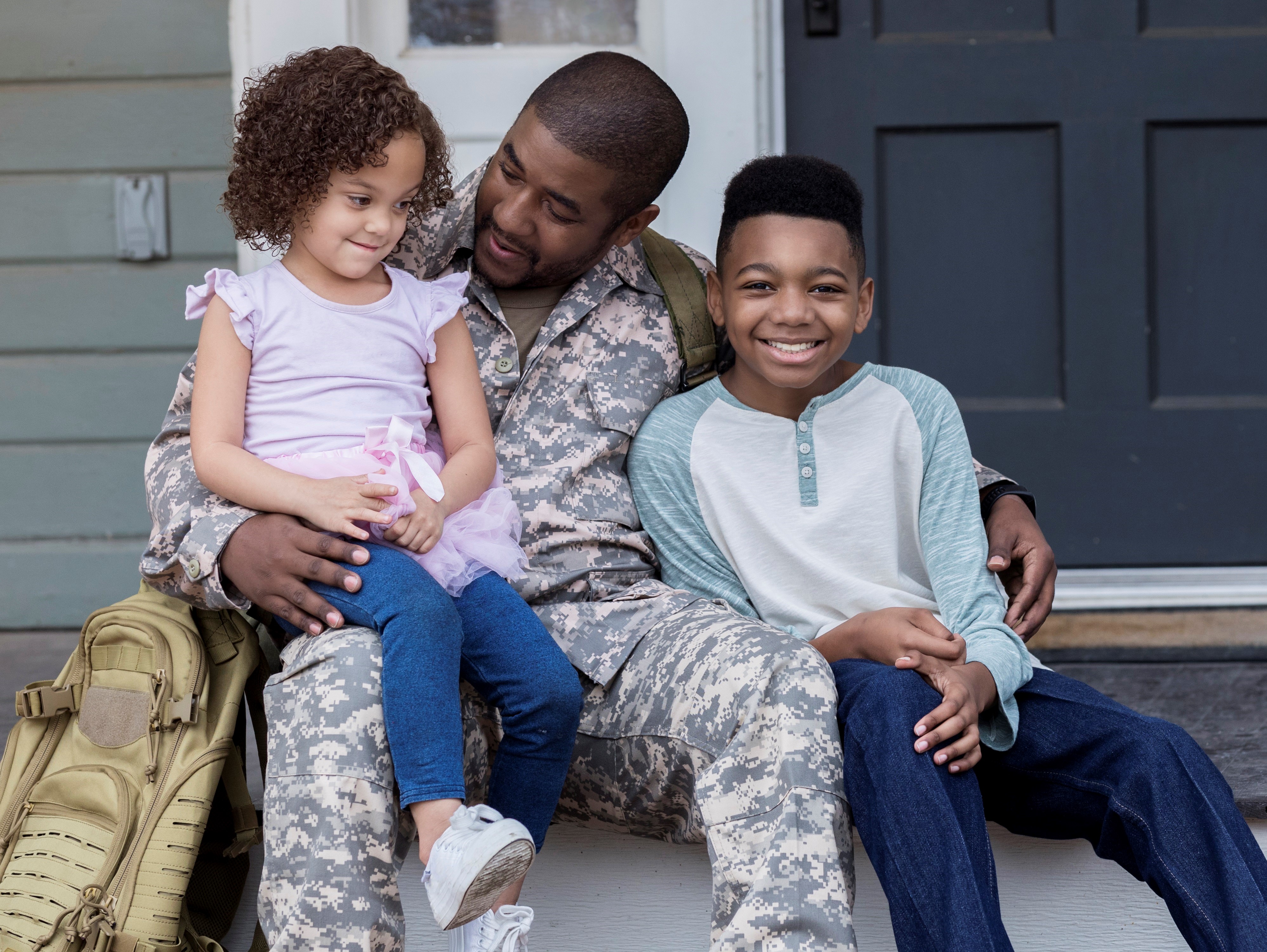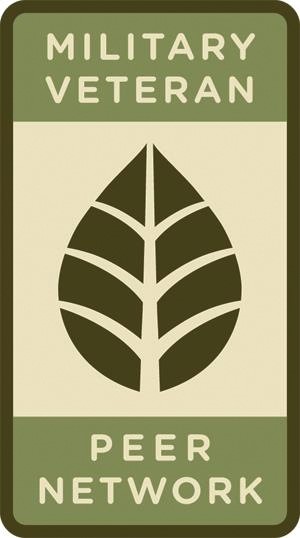TRANSPARENCIES
a monthly newsletter from Integral Care
a monthly newsletter from Integral Care

A Message From Our CEO

Military service members and Veterans are a vital and significant part of our community. Our nation’s heroes face unique stressors and challenges, which affect mental health. Military family members face the impact of frequent moves, deployment, a loved one’s post-traumatic stress or traumatic brain injury too. Studies show that military-connected children are 2.5 times more likely than their peers to struggle with anxiety. With the right tools and support, military and Veteran families can weather the storms they’ve experienced and achieve health and well-being.
This June we recognize PTSD (Post-Traumatic Stress Disorder) Awareness Month and the reality that it’s not only the soldier impacted by PTSD. Family members of a person with PTSD can experience secondary stress, leading to depression, anxiety and alcohol or drug use. In fact, recent research shows that for service members and Veterans with PTSD, the risk of major depression is higher for their spouse.

Terrace construction nearing completion
Integral Care helps ensure that military members, Veterans and their families living with PTSD, or any other mental health issue, get the help they need. We are thrilled to open Terrace at Oak Springs later this summer, where 25 Veterans experiencing homelessness will have a home and access to onsite healthcare and other support services, to help them recover and reach their full potential. Most of the 25 will have spent time at Safe Haven, Integral Care’s temporary housing and support program, which serves as a path to permanent housing for Veterans. Beyond housing, we are proud to make a difference in the lives of military families through psychiatric care, individual, marriage and family counseling, the Military Veteran Peer Network (a collaboration with the Samaritan Center funded by Health and Human Services), drug and alcohol treatment, and our new Mental Health First Aid class specifically focused on military culture and its risk factors. All services are provided at no cost.

Mayor’s Challenge Press Conference, photo credit: Anita Price
Representatives from across Integral Care, including our new Program Manager for Veterans, Military & Family Services, Dr. Emily Stone, are participating in the recently initiated Mayor’s Challenge, a national movement to help prevent suicide among Veterans, service members and their families. Mayor Steve Adler is bringing teams of community leaders together to develop an action plan to decrease suicide rates in Austin. In 2017, Veterans accounted for 6.4% of suicide deaths in our city. While the Veteran suicide rate is higher in the rest of the state (17%) and across the nation (38.4%), our goal is zero suicides as our city works to strengthen access to mental health care and drug and alcohol treatment.
Five bills to help improve the lives of Veterans passed this legislative session. House Bills 714, 2481, 4429, and Senate Bills 822 and 1180 are awaiting Governor Abbott’s approval. These bills seek to:
Sound public policy can improve health outcomes and fully honor the families who serve our nation through military service.

David Evans
Chief Executive Officer
Peers & Mental Health First Aid: Connections Making Lives Better
Connections greatly bolster our overall health. Their power cannot be underestimated. Connecting with family, friends, peers who have similar life experiences or to resources and supports, improves the ability of our military and Veteran families to achieve and maintain health and well being.
 “No one wades a stream without getting wet and no one comes back from war unchanged.” So says the Military Veteran Peer Network, a collaboration between Integral Care and Austin’s Samaritan Center, funded by the Texas Health and Human Services Commission (HHSC). They are a band of 40 certified, volunteer Veteran peer mentors who work to help other Veterans, service members and their families. They know military culture – its challenges and rewards – and provide valuable one-on-one support and help navigating resources, such as applying for benefits. Veterans coming out of county jail or state prison may receive support, as well as those in Veterans Treatment Court who have been charged with non-violent misdemeanors, which may be related to mental health problems resulting from their military service. The network also hosts social activities, another way they build connections among military members.
“No one wades a stream without getting wet and no one comes back from war unchanged.” So says the Military Veteran Peer Network, a collaboration between Integral Care and Austin’s Samaritan Center, funded by the Texas Health and Human Services Commission (HHSC). They are a band of 40 certified, volunteer Veteran peer mentors who work to help other Veterans, service members and their families. They know military culture – its challenges and rewards – and provide valuable one-on-one support and help navigating resources, such as applying for benefits. Veterans coming out of county jail or state prison may receive support, as well as those in Veterans Treatment Court who have been charged with non-violent misdemeanors, which may be related to mental health problems resulting from their military service. The network also hosts social activities, another way they build connections among military members.

Thanks to a grant from the Substance Abuse and Mental Health Services Administration (SAMSHA), Integral Care provides a free Mental Health First Aid (MHFA) class tailored to helping our military community. The class discusses the specific risk factors, such as mental and physical trauma, stress and separation, faced by those with military experience. It teaches participants skills and a 5-step action plan to connect with and help someone showing signs of mental illness, drug or alcohol overuse, or a mental health crisis. MHFA can save a life, just like CPR can save someone who can’t breathe or is having a heart attack. We encourage anyone who interacts with military – whether you’re a barber, pastor, or work in a clinic that sees military families – to register now for the next 8-hour training, scheduled for July 15. With the right tools and knowledge, you can make a difference in someone’s life.
Samaritan Center: Serving Those Who’ve Served
A holistic approach to healing guides the work of Austin’s Samaritan Center. They believe in treating the mind, body and spirit to achieve wellness. Roughly half of their clients are Veterans, service members and their family members. Many of their clients are working to make ends meet, living below 200% of the federal poverty level.
 For more than 40 years, The Samaritan Center has offered counseling services, including evidence-based trauma treatment approaches, such as Eye Movement Desensitization and Reprocessing (EMDR). This therapy helps individuals process traumatic memories and handle current situations that may remind them of the original traumatic event. The Center’s Hope for Heroes program also provides integrative medicine, including tai chi and yoga classes, acupuncture and herbal medicine.
For more than 40 years, The Samaritan Center has offered counseling services, including evidence-based trauma treatment approaches, such as Eye Movement Desensitization and Reprocessing (EMDR). This therapy helps individuals process traumatic memories and handle current situations that may remind them of the original traumatic event. The Center’s Hope for Heroes program also provides integrative medicine, including tai chi and yoga classes, acupuncture and herbal medicine.
We are proud to partner with the Samaritan Center on the Military Veteran Peer Network. They are also a collaborator in our Mental Health First Aid trainings for Veterans, military members and their families. A Veteran peer on their staff helps teach the class. Together, we strive to elevate health and well-being, so that every one of our community members involved with the military can reach their full potential.
May: Women and Mental Health
April: Legislative Session Status Report
March 2019: Making Opportunities for Recovery More Accessible
February 2019: Recovery is Possible
January 2019: Stronger Outcomes Through Collaboration
December 2018: Looking ahead to the 86th Texas Legislature
November 2018: How Tech is Changing the Face of Mental Health
October 2018: A Few Questions Could Help Save a Life
September 2018: Anyone Can Save a Life
August 2018: A Milestone Moment
July 2018: Equity in Mental Health Care for All
June 2018: Expanding Services for Veterans
May 2018: Your Mental Health Toolkit
April 2018: Time of Terror Calls for Increased Emotional Support
March 2018: Stopping the cycle of incarceration for individuals with mental illness
February 2018: Equity in mental healthcare for everyone
January 2018 : Improving Mental Health Through Partnership & Collaboration
December 2017: Strength Through Community
November 2017 : Healthy Lifestyles Improve Well-Being
October 2017 : National Child Health Day
September 2017 : Strengthening Families and Communities